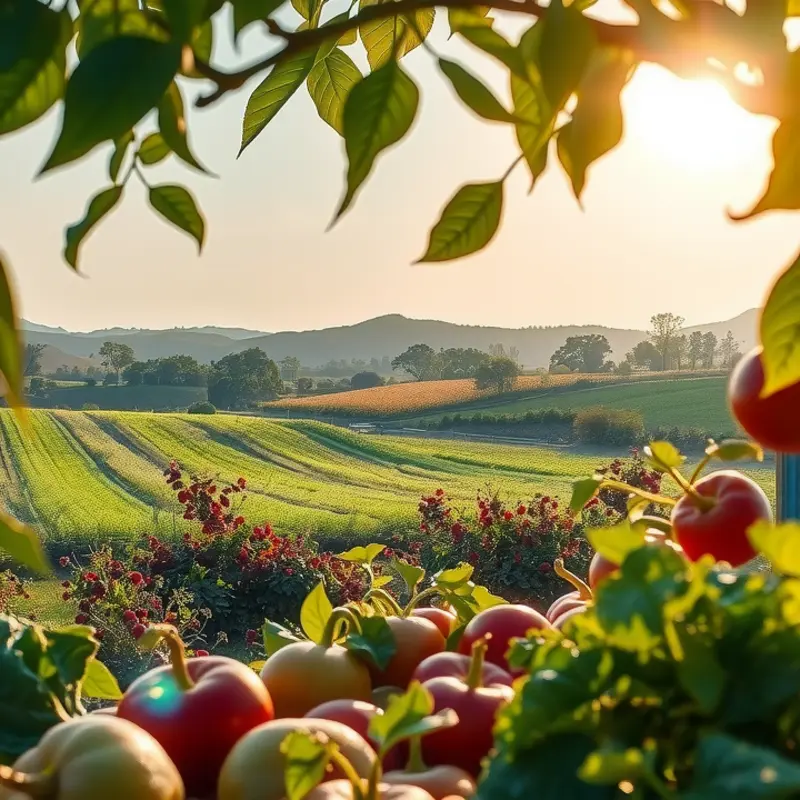In an era where consumers are increasingly aware of the environmental and social impact of their purchases, ethical coffee sourcing has gained significant attention. Environmentally-conscious individuals can make a difference by choosing coffee brands that prioritize sustainability and fair trade practices. This article explores the complexities behind coffee production and how every sip can contribute to a more equitable and eco-friendly world.
Understanding Ethical Coffee Sourcing

Ethical coffee sourcing involves making coffee purchases that prioritize sustainability and fair trade. It affects environmental conservation and social welfare, both of which are crucial for the future of coffee farming. This practice embodies a commitment to human rights, labor equity, and environmental health.
Benefits for the Environment
Coffee farming, when not managed responsibly, can lead to deforestation and biodiversity loss. Ethical sourcing strives to reduce these impacts by encouraging sustainable agricultural methods. Practices like shade-grown coffee minimize deforestation and provide habitats for wildlife. Use of organic farming techniques reduces chemical runoff, protecting local waterways.
Moreover, sustainable coffee farms often implement strategies like crop rotation and composting. These methods enhance soil health and reduce the need for synthetic fertilizers, thus reducing the carbon footprint of coffee production.
Benefits for Communities
Ethical coffee sourcing isn’t just about environmental benefits; it’s also about supporting coffee-growing communities. Fair trade models ensure farmers receive a fair price for their crops. This pricing supports living wages and community development, such as education and healthcare programs.
When farmers receive fair compensation, they can invest back into their communities. These investments lead to improved infrastructure and quality of life. Building local economies through coffee farming fosters resilience and empowerment among farmers.
Key Certifications to Look For
To ensure your coffee aligns with ethical practices, look for certifications that verify sustainable sourcing. Some prominent certifications include:
- Fair Trade Certified: This marks support for equitable trade, ensuring farmers receive fair prices and working conditions.
- Rainforest Alliance: This certification focuses on environmental conservation, aiming to protect forests, rivers, soils, and wildlife.
- USDA Organic: Organic certification confirms the absence of synthetic fertilizers and pesticides, promoting healthier ecosystems.
Third-party certifications provide transparency and accountability. They ensure that specific social, environmental, and economic standards are met.
In choosing ethically sourced coffee, consumers can make a significant impact. Mindful decisions help sustain both the planet and its people. These choices foster a better future for coffee-growing regions, ensuring their growth is sustainable and equitable.
By being informed about the intricacies of coffee sourcing, consumers can contribute to a robust global effort to make every cup count.*
Choosing Brands That Make a Difference

Choosing a coffee brand that aligns with ethical values can transform your morning brew into a force for good. Various brands today are prioritizing ethical coffee sourcing by adopting sustainable agricultural practices, endorsing fair trade, and supporting local communities. When you buy from these brands, you’re not just buying a product; you’re endorsing their mission and empowering entire communities.
Many coffee brands have embarked on the journey towards sustainability by committing to environmental stewardship. They engage in shading practices that maintain biodiversity, protect water resources, and reduce the carbon footprint. Such practices not only encourage environmentally friendly agriculture but also enhance the quality and flavor of coffee beans. By choosing brands with certified sustainability practices, like organic or rainforest certification, you know you’re making a healthier choice for the planet.
Another crucial aspect is fair trade, which guarantees fair wages and decent working conditions for farmers. Fair trade-certified brands ensure coffee farmers can build sustainable livelihoods. These brands often pay higher than market wages, invest in healthcare and education, and create support services, contributing to stronger and more self-sufficient communities. When you buy fair trade coffee, you help to offset exploitation by large corporations and encourage equitable financial practices.
Some brands go beyond sourcing and actively invest in the infrastructure and economy of coffee-growing communities. They support local education initiatives and health programs, creating a ripple effect that benefits the entire community. By building schools and funding health clinics, these companies play an integral role in community upliftment. When you choose these brands, you are participating in the broader movement towards social equity.
Certain brands further stand out for their commitment to innovation in sustainability. They explore waste-reduction strategies, such as composting coffee grounds or developing biodegradable packaging. By evaluating the entire supply chain from seed to cup, these brands reduce environmental impact even further. Choosing such brands allows eco-conscious consumers to support cutting-edge sustainability practices that have real-world impacts.
Interestingly, just as many health-conscious individuals turn to nutritious diets like the Mediterranean diet, coffee drinkers can ensure their choices nourish both themselves and the planet. With the growing availability of brands dedicated to these values, it’s easier than ever to integrate ethical considerations into your purchasing habits.
By opting for coffee sourced from brands committed to these principles, you take part in a broader movement towards a more sustainable and equitable world. Every cup of coffee then becomes a testament to ethical consumption. Choose wisely and drink your coffee not just for flavor or convenience, but for its potential to make a positive difference in the world.
Final words
Opting for ethically sourced coffee isn’t merely a trend; it represents a meaningful shift toward sustainability and social responsibility. By choosing coffee brands that prioritize environmental stewardship and fair trade principles, you contribute to a healthier planet and support the communities that produce your beloved beverage. Whether you’re enjoying a cup at home or opting for your daily brew from your favorite café, your choices matter. The next time you reach for coffee, remember that each sip can be a step toward a better world.








